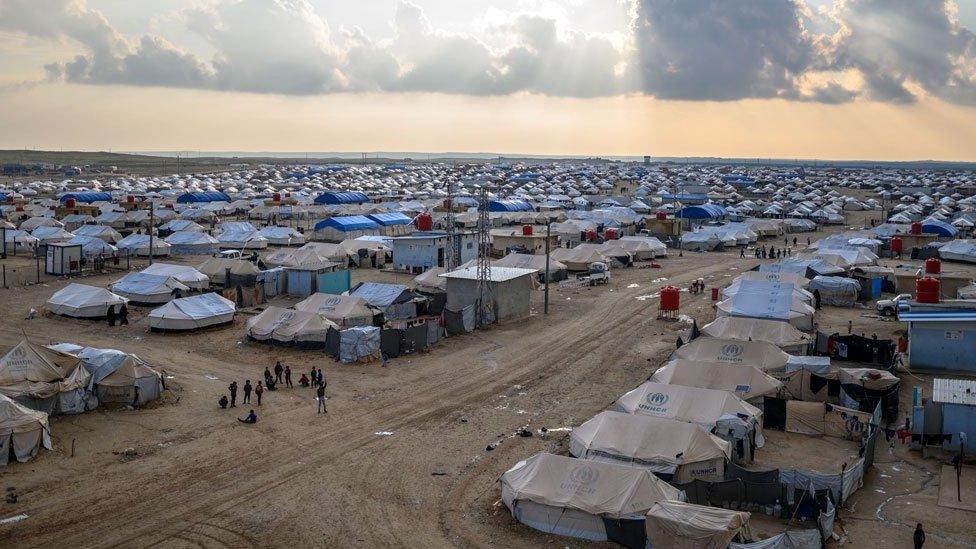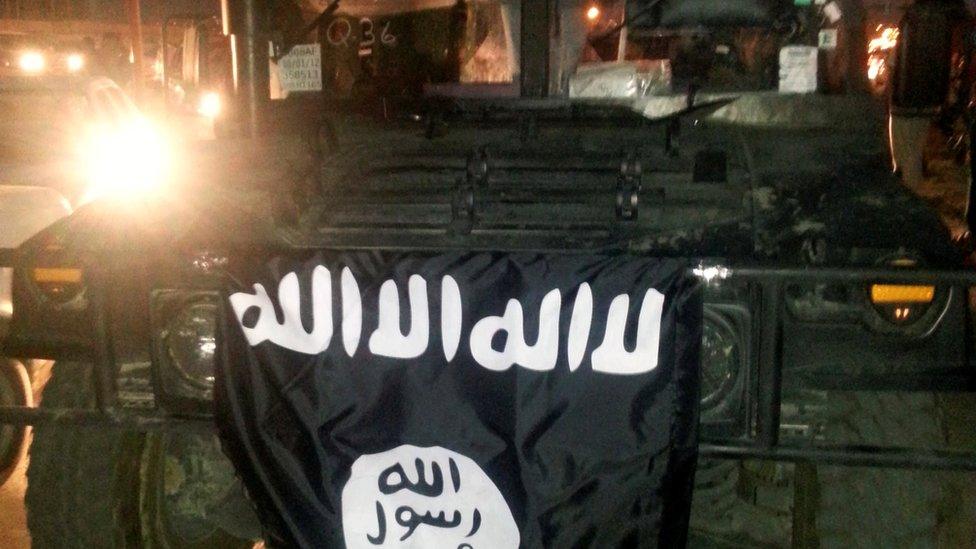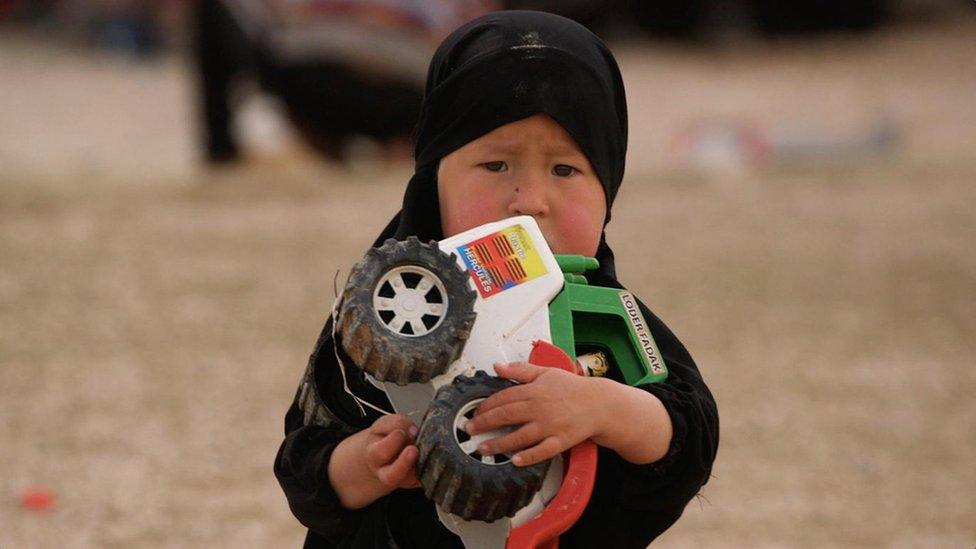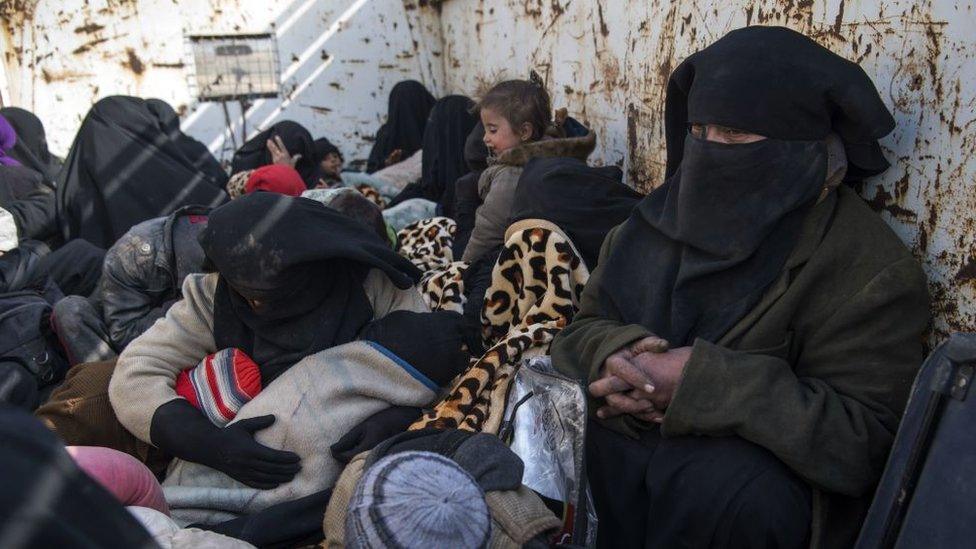IS wife and her children must be repatriated, rules German court
- Published

Al-Hol camp in north-eastern Syria is home to thousands of IS family members
A Berlin court has ruled that the government must repatriate the German wife of a suspected Islamic State (IS) group fighter and her three children.
The court said the children would suffer if they remained in the al-Hol refugee camp in Syria.
The case came about because the woman's family sued the foreign ministry after officials had refused to help her return to Germany.
It is the first such ruling in the country.
Until now Germany had been prepared to allow some of the children to travel to Germany without their mothers, fearing that the women might have been radicalised and could pose a danger to German society.
Ashwaq, a Yazidi teenager sold by Islamic State, came face to face with her former captor
In this case, the court explained that "inaction" meant the three children would be faced with "serious, unreasonable and unavoidable disadvantages".
The children are eight, seven and two years old, reports the Suddeutsche Zeitung newspaper, external. The mother is from the federal state of Lower Saxony.
The BBC's Damian McGuinness in Berlin says this case is one of a number brought by the families of suspected IS members against the German government.
Dozens of German wives of suspected IS fighters and at least 100 children remain in Syrian refugee camps, our correspondent says, living in terrible conditions.
Men who return to Germany after joining IS are nearly always subject to criminal investigation. But prosecutors previously tended to search for more evidence before launching criminal investigations against women.
However, this changed in December 2017, when it was announced that men and women suspected of joining IS abroad would not be treated differently.
Who are Islamic State?
The extremist Islamist group came to international prominence in 2014 when it seized large parts of Syria and Iraq.
IS imposed its brutal rule on almost eight million people, carried out countless atrocities, destroyed cultural heritage, and generated billions of dollars in revenue from oil, extortion, robbery and kidnapping.
After five years of fierce and bloody battles, local forces, backed by world powers, have driven IS out of all the territory it once controlled.
But the group is by no means defeated. Experts say it will return to its insurgent roots while rebuilding and remains a global threat.
- Published28 December 2018

- Published12 April 2019

- Published15 February 2019
